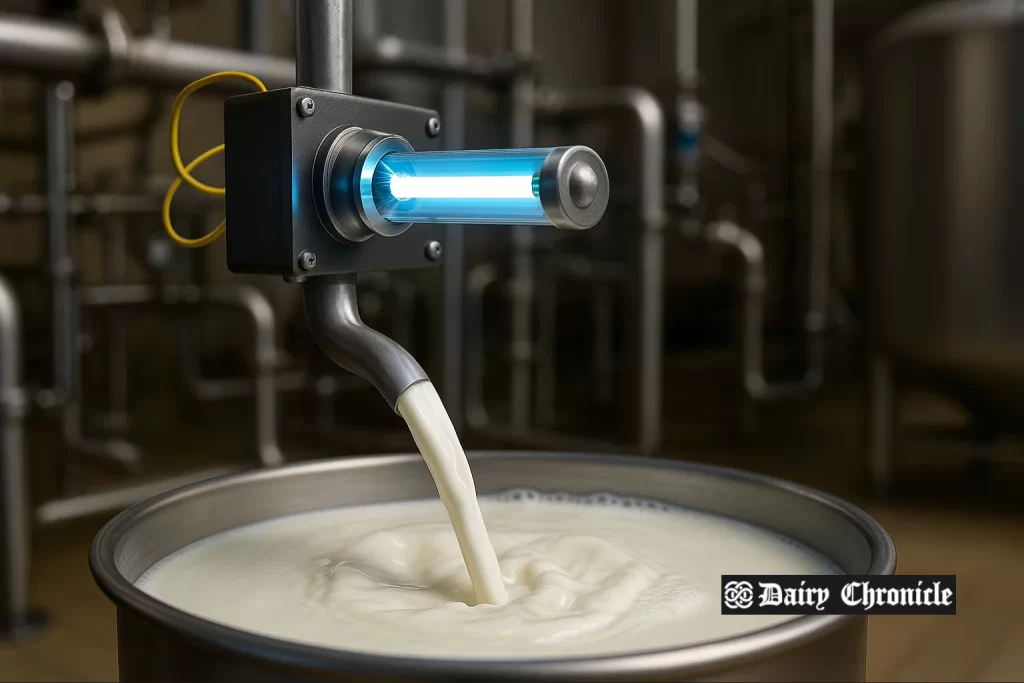In Colombia’s Cundinamarca state, the University of Cundinamarca’s Ubaté branch has developed a UV light prototype to improve milk hygiene, supporting local dairy producers with sustainable and nutrient-preserving technology.
The University of Cundinamarca (Universidad de Cundinamarca), a public institution known for its research and regional development initiatives in Colombia, has launched a pioneering project using ultraviolet (UV) radiation to enhance milk hygiene in the country’s dairy heartland.
Led by researchers Fredy Alexánder Baqueo and Iván Olimpo Velásquez Parra at the university’s Ubaté campus, the project introduces a prototype designed to reduce microbial load in milk immediately after milking. This approach offers an alternative to conventional chemical treatments that can affect milk quality and consumer health.
The innovation aims to assist small dairy producers in Ubaté Province by offering a cleaner, energy-efficient method that helps preserve vital nutrients like vitamins A and D. By minimizing the need for heat-based processing, the UV method significantly reduces energy use and the environmental footprint of dairy operations.
Currently in the prototype development phase, the project is preparing for initial experimental trials scheduled for June 2025. Researchers hope the model will serve as a sustainable benchmark for the broader Colombian dairy sector, promoting both food safety and environmental responsibility.
This initiative aligns with Colombia’s growing focus on agri-tech solutions to empower local producers and strengthen food security while addressing environmental concerns.



